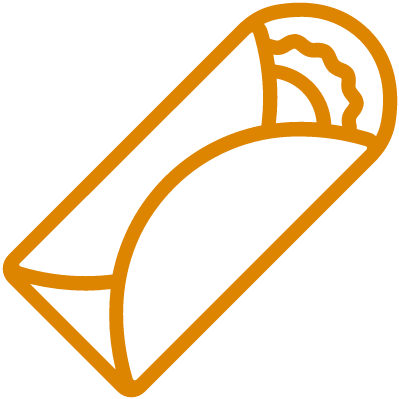A good test of financial health is whether you end the month with more cash than you started. No matter where your money is going whether it is building your wealth or not, if you end the month with less cash than you started then you need to make some changes.
When we run out of cash we resort into taking on debt we did not intend to take on. While I do believe in good debt, I do not believe any debt that arises from running out of money is good debt. If you could not pay for it to begin with, then you certainly cannot pay for it now.
So how can we stay cashflow positive and maintain a strong financial health? Worse yet, how can we get out of spiraling negatively into debt?
Pay yourself First
The simplest way to make sure you are keeping enough cash on hand is to pay yourself first. Take a set percentage or amount each time you are paid and put it aside for savings, retirement, or whatever you deem appropriate.
This is much easier said than done if you have not been doing it. If you are fairly young and just started your career or just received a sizable increase in income, then you have a much easier time with this. Just move the money you are not used to receiving aside and keep from spending it haphazardly. I typically urge people to save at least half of any new income they receive.
The problem occurs when you are either late in your career or are not likely to see any increase in income worth mentioning. You will need to find a way to cut down your budget as you are simply living beyond your means and putting yourself at risk of financial instability.
Better Debt
One of the least difficult ways to improve cashflow is to consider how much you are paying on your debts. If you have outstanding credit card or other high interest debt (5% or greater) then you have a good opportunity to pay this debt off with cheaper debt.
If the situation is dire enough and you own your own home, see if you have any equity built up in it and do a cash-out refinance. Mortgage rates are more likely than not going to beat any other debt you have.
If things are not quite that bad or you do not have any available equity in a home, then look into other options such as personal loans. Even if the interest rates are a bit high, if it takes your debt from 20% to 10% then you will see some major savings. If you have multiple outstanding credit card debts then this could also help to consolidate things and potentially ease the mental burden as well.
I know personally when I have numerous monthly payments to watch it is much more tedious than just one. However, be careful not to immediately go back and use the credit cards until you have more outstanding debt. A credit card is a great tool when you pay it fully every month, otherwise it can lead to a painful cycle of interest payments.
Once you are certain you have done what you can do to decrease interest rates, you need to decide the best way to pay these debts off. Compare the debt snowball and debt avalanche methods to see which would suit your personality better.

Know your Limits
It goes without saying, you need to recognize the limits within yourself and make changes to protect you from yourself.
If you have a bad habit of maxing out credit cards despite telling yourself you will not, then it would likely be best if you either cut them up or hide them. Remove them from all your online shopping carts and forget you even have them.
If you see money sitting in the bank and for some reason just have to spend it, open a savings account at another bank and have a portion of your income deposited there. Most if not all payroll processors can allocate your paycheck between multiple bank accounts.
If you are self employed, then pay yourself a set amount and anything excess is set aside. If you want to get creative you can use a percent. This has two effects: you will be forced to work harder to make more if you want to spend more, and you will automatically be saving money.
If you tend to overspend when you go out shopping, then make a list of things you need before you leave and do not buy anything not on the list. If you cannot help yourself even with a list, then cut down the number of times you go shopping; once a month grocery shopping can save you money once you are used to it.
Figure Out Your Priorities
In order to keep yourself in good financial health, or get out of bad financial health, then you need to figure out what is actually important to you. A proper budget is a simple way to make sure you have enough money to go around; even if you do not use it strictly, just by creating one you can see exactly where your money is supposed to be going.
Once you have a good idea of where your money is going, make sure the amounts make sense to you and whether the expense is actually necessary. Housing and food are certainly a priority, but if you are spending half your take home income on these two categories then you likely need to make a change. For housing, there are numerous ways you can reduce this expense or even earn money. For food, learning to cook is the short answer to all food expense issues.
The opposite is true for entertainment; if you manage to spend hundreds a month on television and streaming services while you are spiraling into debt, you need to cut them immediately. If you are in pretty bad shape and have let lifestyle inflation take over, you will need to be honest with yourself and start to cut back on things you have grown accustom to. You do not deserve to suffer while paying for entertainment you likely are not enjoying to the fullest due to financial stress.
Use What You Have to Get What You Want
A major painpoint in many families is the “need for new.” A new TV or next year’s model car is released, and you absolutely need it.
For the most part, people get rid of things that still work perfectly fine, they just want something newer. This is absolutely insane from a financial perspective. Expensive purchases are supposed to last a long time, so give them a chance to. Worse yet, what does that say about your mindset when you bought the original item? Why would you buy something to only want to replace it in a year or two? If you do not genuinely need the newer version for a real reason, then why are you replacing what you have now if it is still functioning perfectly fine for you?
If you want to work towards a strong foundation for your finances, then you need to be willing to use what you have while it still has life in it. I’m not saying to drive a piece of junk around because it still moves or to live in a shack because it is a roof over your head, but you also do not need to upgrade as often as most people do.
The other side of this is that you should consider buying used instead of new. In most situations you will pay significantly less and the people who bought brand new will have worked out all the kinks for you. The difference in “new” and “new to you” is trivial at best.

The Secret to Financial Health
Really, there is no one thing anyone can point to that will dramatically improve your financial situation. It is through a series of intentional changes in attitude and mentality that we become wealthier.
Keep focusing on the little, easy improvements and one day they will add up to some major life changes.




